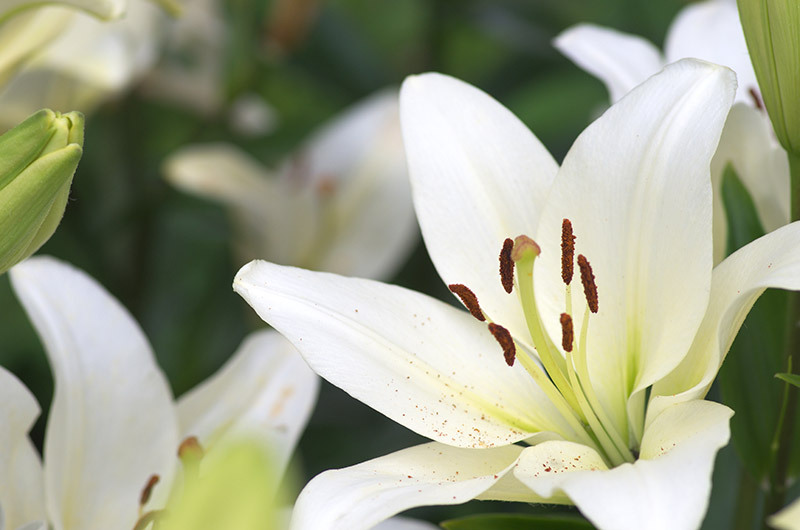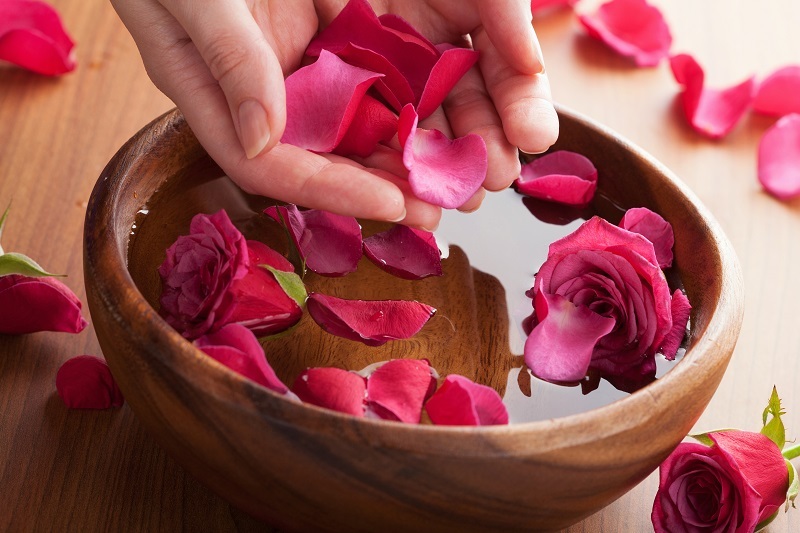8 Sunflower Facts That Will Surprise You
Posted on 22/08/2025
8 Sunflower Facts That Will Surprise You
Sunflowers are much more than just a beautiful addition to a summer garden or a vast, golden field. These impressive blooms have captivated people for centuries with their vibrant appearance and surprising qualities. Whether you're a gardening enthusiast or simply curious about this iconic plant, get ready to be amazed. Here we reveal 8 sunflower facts that will surprise you, shedding light on their history, biology, uses, and cultural significance. Let's dive in!

1. Sunflowers Can Track the Sun - But Only When They're Young
The most distinctive aspect of sunflowers (known botanically as Helianthus annuus) is their supposed ability to turn their heads and follow the sun throughout the day--a phenomenon called heliotropism. This fascinating behavior is especially prominent in young sunflower plants.
How Does Heliotropism Work?
- During their early growth stages, sunflowers face east in the morning and gradually turn west to follow the sun's arc across the sky.
- When night falls, they reset to face east, ready for another day.
- This daily dance helps maximize photosynthesis and growth rate.
Surprisingly, once sunflowers mature and begin to bloom, they permanently face east and stop tracking the sun as closely. This eastward orientation actually helps attract more bees, making pollination more effective.
2. Sunflowers Are Global Giants of the Plant World
When you picture a sunflower, you might imagine a tall plant with a large yellow bloom. But did you know that sunflowers hold some world records? Their stature and size are truly amazing!
- Tallest Sunflower: The official Guinness World Record for the tallest sunflower stands at a staggering 30 feet 1 inch (9.17 meters), grown by Hans-Peter Schiffer in Germany in 2014.
- Biggest Sunflower Head: Some sunflower heads can reach up to 24 inches (60 centimeters) in diameter--a dazzling sight in any field!
Sunflower varieties come in all shapes and sizes, from compact decorative types for gardens to mammoth cultivars grown specifically for impressive size and seed production. Their rapid growth and robust stature make them a top choice for home gardeners and farmers alike.
3. Sunflowers Have Been Cultivated for Millennia
Did you know that sunflowers are one of the oldest domesticated plants in North America? Indigenous peoples cultivated sunflowers as far back as 3,000 BCE in what is now the central United States and Mexico.
Rich Cultural and Practical Value
- Native Americans used every part of the sunflower: seeds as food, oil for cooking and skin care, stalks for building materials, and petals for dyes.
- European settlers quickly adopted sunflowers after they were introduced following the Spanish conquest, further spreading the plant's popularity.
Today, sunflowers are grown on every continent except Antarctica, making them a true world citizen among plants.
4. Sunflowers Clean Up the Environment
Perhaps one of the most incredible facts about sunflowers is their use in environmental clean-up projects. Sunflowers have phyto-remediation properties, meaning they can remove toxins from soil and water. Here's how:
- They absorb heavy metals like lead, arsenic, and uranium from contaminated soil through their roots.
- Sunflowers have been planted at sites such as Chernobyl in Ukraine and Fukushima in Japan to help remove radioactive substances from the ground.
- This unique trait makes sunflowers an eco-friendly choice for land restoration projects worldwide.
The ability to "eat up" toxins highlights sunflowers as far more than just a pretty face--they're true environmental heroes!
5. Sunflower Seeds Are a Nutritional Powerhouse
Many people enjoy munching on roasted sunflower seeds as a snack. But behind their mild flavor lies a wealth of nutritional benefits:
What Makes Sunflower Seeds Special?
- High in Healthy Fats: Loaded with polyunsaturated and monounsaturated fats, sunflower seeds are great for heart health.
- Rich in Vitamin E: These seeds are one of the best plant-based sources of vitamin E, a powerful antioxidant.
- Contain Protein, Magnesium, and Selenium: Essential minerals for a healthy mind and body.
Whether sprinkled on salads, added to granolas, or enjoyed by the handful, sunflower seeds are a smart, nutritious addition to any diet. They even play a large role in sunflower oil production, one of the most popular oils worldwide.
6. Sunflowers Symbolize Happiness and Positivity
It's no surprise that sunflowers are linked with feelings of warmth, happiness, and optimism. In many cultures, their bold, upright blooms are seen as symbols of the sun and its life-sustaining energy.
Cultural Meanings Across the World
- In China, sunflowers represent longevity and good fortune.
- In Native American traditions, they symbolize harvest, provision, and bounty.
- In Victorian England, bouquets of sunflowers stood for gratitude and admiration.
Sunflowers have even inspired artists like Vincent van Gogh and become popular motifs in festivals and celebrations. Their joyful energy makes them a beloved symbol in art, literature, and daily life.
7. There Are Hundreds of Sunflower Varieties
While the iconic yellow sunflower is instantly recognizable, the world of sunflowers is far more diverse than many people realize. There are over 70 species and countless cultivars, offering a spectrum of sizes, shapes, and colors:
- Dwarf sunflowers: Perfect for potted displays or small gardens, growing just 1-2 feet tall.
- Giant sunflowers: Can tower well over 10 feet, with massive flower heads for striking landscape displays.
- Colorful varieties: From classic golden yellow to orange, red, maroon, and even chocolate brown petals.
Florists and gardeners love experimenting with these unique variations, often combining different types to create vibrant, eye-catching displays.
8. Sunflowers Play a Vital Economic Role Worldwide
Beyond their garden beauty and artistic inspiration, sunflowers are a critical crop in agriculture. Their economic significance spans:
- Sunflower oil: Extracted from seeds, it's one of the most widely used cooking oils globally.
- Animal feed: After oil extraction, the leftover "sunflower meal" is a valuable source of protein for livestock.
- Birdseed: Black oil sunflower seeds are a popular choice for wild birds.
- Honey production: Sunflower fields attract bees, boosting honey yields and supporting pollinator populations.
Countries such as Ukraine, Russia, Argentina, and the United States are among the largest producers of sunflower seeds and products. This widespread cultivation supports farmers, adds value to rural economies, and feeds people, animals, and pollinators worldwide.

Conclusion: Why Sunflowers Continue to Amaze
As you can see, sunflowers are so much more than a cheerful flower facing the sun. Their unique biology, historical importance, environmental benefits, nutritional value, symbolism, variety, and economic impact make them a truly remarkable plant. The next time you admire a sunflower's sturdy stalk or vibrant blossom, remember these surprising sunflower facts--and share them with a friend!
If you're looking to add a touch of sunshine to your garden or kitchen, consider the many benefits and wonders of sunflowers. Their story is far richer and more interesting than most people ever imagine.
Frequently Asked Questions about Sunflowers
What are sunflowers used for?
Sunflowers have a wide range of uses: decorative flowers, edible seeds, oil production, animal feed, environmental clean-up, and more.
Are sunflower seeds healthy?
Absolutely! Sunflower seeds are nutrient-dense, offering healthy fats, vitamins, minerals, and antioxidants.
How do you grow sunflowers?
Sunflowers are easy to grow from seed in gardens or containers. Just plant in full sun, water regularly, and enjoy their rapid growth!
Why do sunflowers follow the sun?
Young sunflowers display heliotropism, tracking the sun to maximize light absorption and promote strong growth.
Latest Posts
Why the Red Rose Has Become Valentine's Day's Floral Icon
8 Sunflower Facts That Will Surprise You
Ensuring Lush, Healthy Hydrangeas with Expert Care





